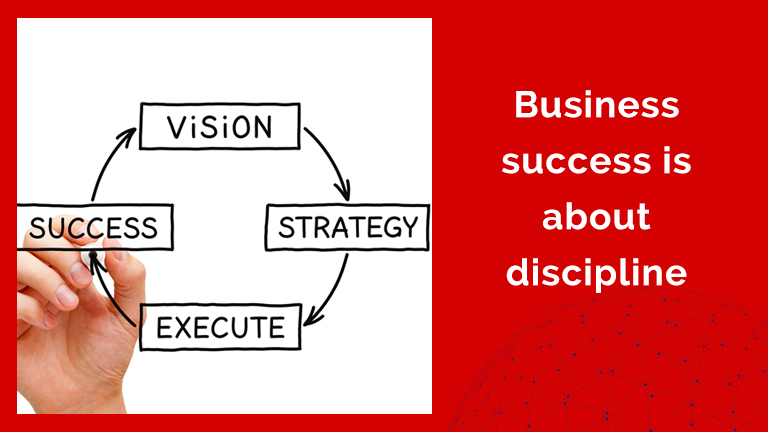
Discipline eats strategy for lunch. In the world we live in, and the one we remember from not so long ago, a strong resolve is critical to achieve success. As businesses big and small are reinventing their strategies to handle an ever-changing landscape, they must plan to endure a lot of change. Companies that inject a strong dose of discipline into their business and digital transformation approach are most likely to overcome inevitable obstacles.
In a recent whitepaper released by OneVision, we discussed how a unique process of execution enables “Enterprise Performance with 4DXâ€, The 4 Disciplines of Execution (Covey, Huling, and McChesney, 2011). Now more than ever, these rules of engagement can guide your business through uncertain times. Business transformation results from an evolution of change that will be met with multiple distractions. Distractions ranging from small setbacks such as system integration issues, to major roadblocks such as a shift to remote work mandates. These obstacles represent both the reasons for failure as well as the crossroads to success. By leveraging a methodology such as the 4 Disciplines of Execution (4DX), companies are prepared to endure change, big and small.
As recent events remind us that digital transformation is vital to keep pace in a hyperconnected world, let’s review how 4DX can be leveraged to rise above a major challenge. Here is a summary of the 4 disciplines that can assist with major changes and goals companies adopt:
- Clarify Business Goals – Business and Digital transformation objectives may not always be clear to company employees and stakeholders. Set goals that people can connect to a vision for the future. Keep things simple, concise, and inspiring. This goal will translate into the ultimate success of the project by which all other tasks are measured.
- Track Daily Activities – Place focus on daily activities that measure progress toward your business goal. These activities are much easier for employees to act upon and relate to how they are impacting the project. It’s very important employees feel “empowered†to make an impact, with short term metrics that demonstrate progress.
- Keep Score of the business – Employees will need simple visibility into how a project or strategy is performing. Easy to understand scoreboards that provide metrics for their team, other teams, and the company as a whole, build engagement. As employees are able to watch the influence they are making toward large initiatives, they are more likely to course correct and remain accountable. Everyone wants to know if they’re winning or losing, and take the proper measures as needed.
- Create a Cadence of Accountability – A focus on accountability stops excuses and finger pointing. There are clear tasks each person/team is accountable for, so the internal confusion that some may hide behind is diminished. Weekly cadence meetings identify a progress using individual metrics from activities as described above, and are available to view on the scorecard.
These disciplines are core to implementation because they foster both logical and emotional connections between the business and employees. When the business aligns the actions of people directly to success, the results can be remarkable. A transformation at its root instills “dramatic†change, and digital, business and IT transformations will be met with “dramatic†challenges. This should not discourage our efforts, but actually fuel them. The outcome of these efforts can mean significant improvements to an organization, but the follow through will certainly require discipline.
Next Steps:
Take a moment to contemplate the 4 Disciplines of Execution (Covey, Huling, and McChesney, 2011) discussed here and read our whitepaper to learn more. Identify areas in your organization that can benefit from this approach but keep your ambitions in check. Don’t choose more than 1 or 2 goals to evaluate, as the process can be much harder than it looks.
OneVision consultants are experts at 4DX and change management orchestrating the right execution plan tailored to your company. Let’s talk about your next business initiative.